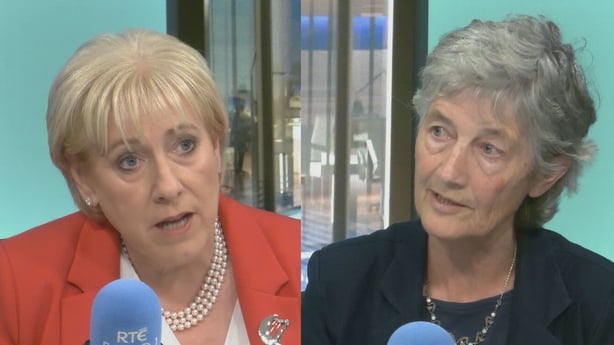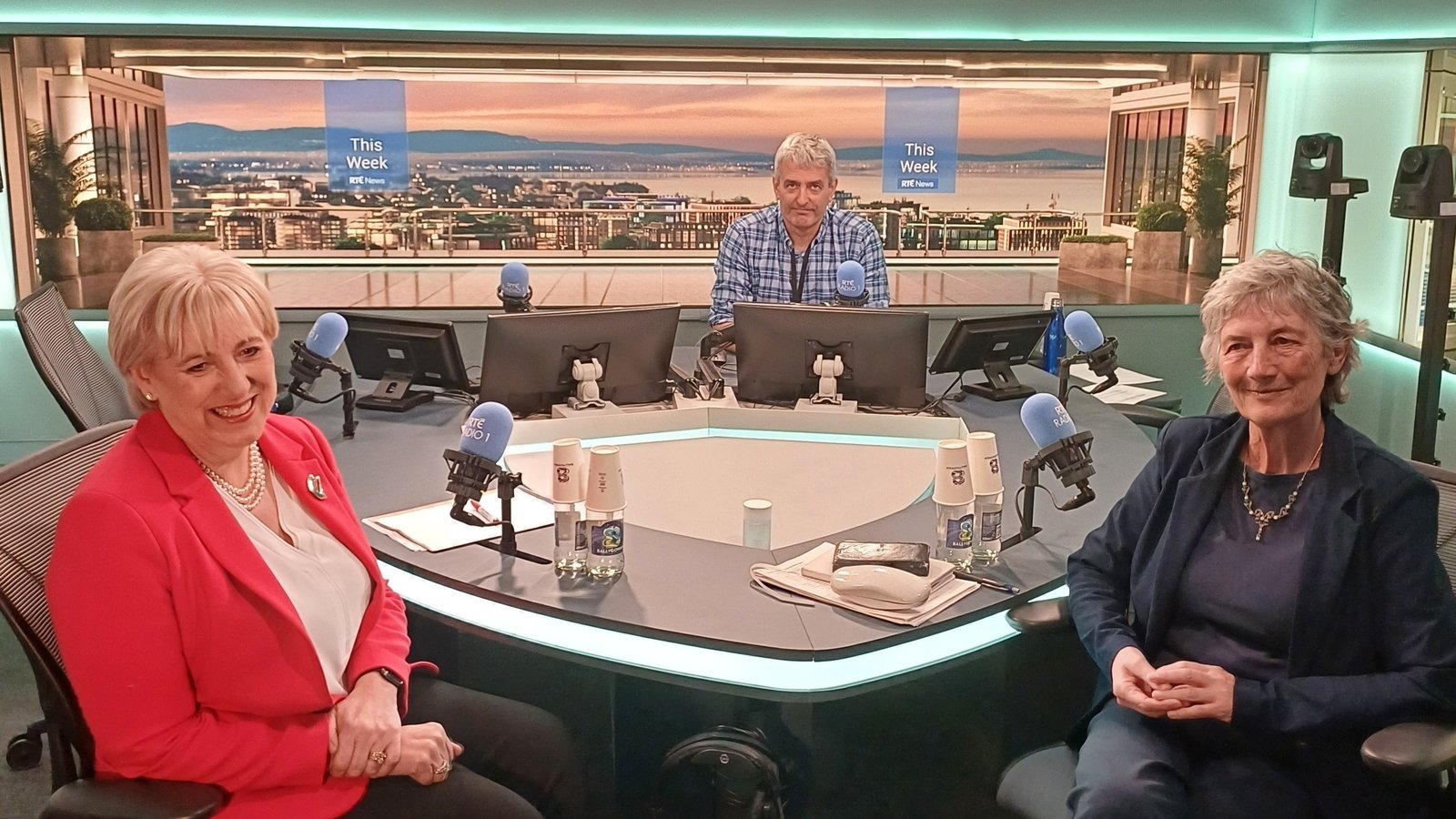The presidential race took to the airwaves today with candidates Heather Humphreys and Catherine Connolly taking part in a live debate with presenter David McCullagh on RTÉ’s Radio’s This Week programme.
The candidates clashed over their stance on the Triple Lock in relation to the deployment of the Defence Forces overseas, as well as relations with other European nations.
RTÉ’s Political Correspondent Paul Cunningham takes a look a 5 key takeaways from the debate.
Ding-dong
As soon as the debate began, the candidates seemed to dispense with presenter David McCullagh. They got stuck into each other, in what was the liveliest presidential debate to date.
Heather Humphreys tried, repeatedly, to take Catherine Connolly to task over her public statements and decisions.
Ms Connolly responded in kind. The backdrop to the debate was a Business Post/Red C poll which suggests that Catherine Connolly has a substantial lead over her rival. It may partially explain the direct approach adopted by Humphreys.
Heather attacks
The Fine Gael candidate’s criticisms of Catherine Connolly were not new, but there was more of an intensity to how they were phrased.
She claimed Ms Connolly does not speak out “in the same way” against Russia as she does against other countries.
She asserted that Ms Connolly is aligned with far-left politicians, like Mick Wallace, Clare Daly and Paul Murphy, who “have spoken out against Europe”.
Ms Humphreys accused her rival of insulting Ireland’s allies – France, Germany, the UK, and the US – adding: “That doesn’t go without consequences.”
She also questioned Ms Connolly’s support of women, when referring to a comment that she made about having to consider whether she would employ a person found guilty of rape: “How would some woman feel if we had a rapist employed in Áras an Uachtaráin?”
She branded a woman convicted of firearms charges by the Special Criminal Court, and who Ms Connolly subsequently employed at Leinster House, as a security risk: “She was a risk. There is no doubt about that.”

The candidates clashed over their stance on the Triple Lock
Catherine defends
The Independent candidate shot back that Ms Humphreys was engaging in what she branded “the politics of fear”, adding that the allegations were “utterly without substance”.
She said it was being suggested that she was both anti-business and anti-Europe, but the truth was that she’d been “pro-business all my life” and “absolutely a committed European”, adding: “I question. And I would encourage a lot more people to question. It’s the essence of democracy.”
Ms Connolly said it was “inaccurate” to say that she broke Dáil rules when hiring a Dáil advisor. She added that she had not insulted any country but she did not trust the US, the UK and France due to their arms industries.
The Independent candidate said her Dáil record was “second to none” when standing-up to violence against women.
She also advanced her own polices, like retaining the triple lock, saying: “What the people should get is a referendum.”
She hoped Fianna Fáil voters will back her, noting the legacy of former Minister for Foreign Affairs Frank Aiken and his opposition to nuclear weapons.
We need your consent to load this rte-player contentWe use rte-player to manage extra content that can set cookies on your device and collect data about your activity. Please review their details and accept them to load the content.Manage Preferences
Après debate
As usual, there were post-debate interviews.
Ms Connolly was asked why she had rejected Heather Humphreys’ assertion that she’d always voted against Europe.
Ms Connolly said she actively campaigned against the first Lisbon treaty referendum, and “probably” voted in favour of others, but was not able to give an example.
Ms Humphreys denied she was engaging in a smear campaign against Ms Connolly, but added that her opponent has “questions to answer”.
Events
While two opinion polls have placed Catherine Connolly in the lead, 12 days of campaigning still remain.
There have been major swings in previous presidential campaigns. Jim Gavin’s exit from this campaign underscores that.
This contest is far from over.
When British Prime Minister Harold Macmillan was asked what would determine his government’s future, he replied dryly: “Events, dear boy, events.”
We simply don’t know if there’s an event which will change the course of the race for Áras an Uachtaráin.

